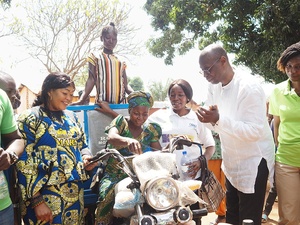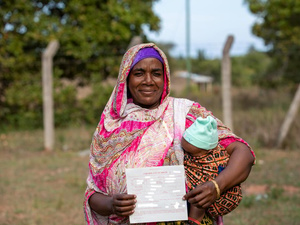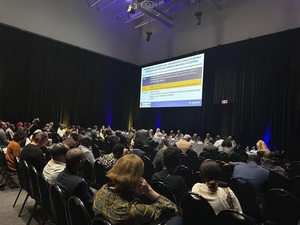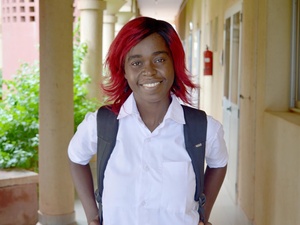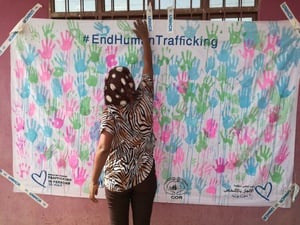Liberia: Agencies struggling to cope with Côte d'Ivoire arrivals
Liberia: Agencies struggling to cope with Côte d'Ivoire arrivals
Humanitarian agencies in north-eastern Liberia are struggling to cope with the arrival of thousands of refugees from neighbouring Côte d'Ivoire. An estimated 13,000 people have crossed the border in the past two weeks, most of them by canoe across Cestos River that marks the frontier between the two countries.
Water and security are two of the most pressing concerns. With no potable water available, people are drinking from streams. And there is, at the moment anyway, no national police presence along the porous border. There is also an urgent need for food and medicine, which were already in short supply for the local population even before the arrivals of the refugees. The delivery of food and assistance presents enormous challenges in an area totally lacking in infrastructure, where roads and bridges have been destroyed by 14 years of conflict. More aid will likely have to be airlifted by UN helicopters, as was the case last weekend. Meanwhile, a UN/NGO inter-agency mission is conducting a technical assessment of needs and the best ways of addressing them for both the refugees and the local population.
About 900 of the new arrivals are Liberian nationals, who had until two weeks ago been among the 70,000 Liberian refugees currently in Côte d'Ivoire. The others are all Ivorians, of whom more than 10,000 had been officially registered as of Wednesday. The registration process is ongoing, and is particularly difficult because the refugees are coming in along a 45-km stretch of river border, from where they disperse into more than 20 villages. Most are sharing accommodation and food with the local Liberian population.
The majority of the Ivorians are coming from western Côte d'Ivoire, with large numbers originating from the towns of Guiglo and Danané, near to the so-called "Zone de Confiance" that is patrolled by UN troops to maintain the peace between rebels in the north and government troops in the south. Danané is just north of the Zone de Confiance, Guiglo is not far south.
Many of the refugees told UNHCR they left Côte d'Ivoire because they were scared that fighting would once again erupt between rebels and government soldiers. In recent days, some of the new arrivals reported hearing gunfire, while others said they had fled because government troops were trying to conscript them.
UNHCR has set up two transit centres along Liberia's north-eastern border - one at Butuo, the other in Logatuo. We are looking at the possibility of establishing another centre, 35 kilometres away from the border, which could be used as a camp should the situation worsen. However, the shifting of thousands of people would be extremely difficult given the very poor state of the roads and destruction of bridges in the area.


